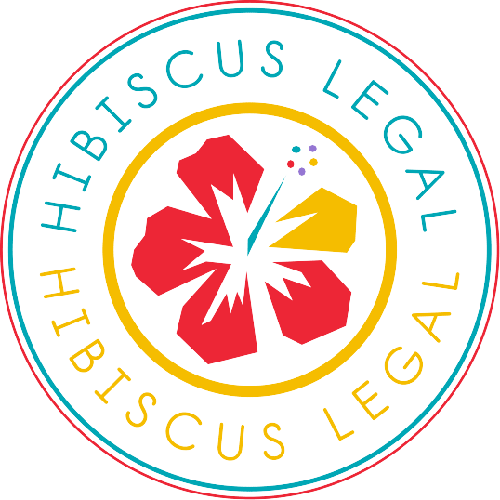Charging Orders
Utah permits personal creditors of an LLC owner to obtain a charging order against the debtor-owner’s membership interest. A charging order is an order issued by a court directing an LLC’s manager to pay to the debtor-owner’s personal creditor any distributions of income or profits that would otherwise be distributed to the debtor-member.
However, in Utah, creditors with a charging order only obtain the owner-debtor’s financial rights and cannot participate in management of the LLC. Thus, the creditor cannot order the LLC to make a distribution subject to its charging order. Frequently, creditors who obtain charging orders end up with nothing because they can’t order the LLC to make any distributions.
Foreclosure
In Utah, a creditor who obtains a charging order but is not paid by the LLC can have the court order that the debtor-owner’s LLC membership interest be foreclosed upon. If this occurs, the creditor becomes the permanent owner of all the debtor-member’s financial rights, including the right to receive money from the LLC. However, the creditor cannot participate in the management of the LLC. Thus, it can’t force the LLC to pay money to it or anyone else.
Before any such foreclosure occurred, it’s likely that the LLC and its members would settle the debt with the creditor. A creditor’s ability to foreclose upon an LLC membership interest puts LLC owners’ personal creditors in a stronger bargaining position than they have under the LLC laws of states that don’t permit LLC foreclosures.
Utah Courts Rule on Charging Order
Earthgrains Baking Companies, Inc. v. Sycamore involved a long-term attempt by Earthgrains Baking Companies, Inc. (“Plaintiff”) to collect upon a multi-million dollar judgment against Leland Sycamore (“Defendant”).
In 2009, Plaintiff filed claims against Defendant for: (a) trademark infringement; (b) unfair competition; (c) cybersquatting; and (d) breach of contract. In 2012, Plaintiff was awarded over $4.6 million in damages and $1.1 million in attorneys’ fees.
Defendant transferred millions in cash and assets to Sycamore Family LLC (the “Company”). The Company’s founding members included Defendant, his wife, and their four children. Defendant owned a 48% membership interest in the Company. The Company held and managed the family’s assets.
By 2014, the Judgment remained wholly unsatisfied, as Defendant’s assets were all in the Company, remaining beyond Plaintiff’s reach. Plaintiff thereafter sought a “charging order” against Defendant’s 48% member interest in the Company. The court approved the charging order against the Company, and included the following instruction:
“Sycamore Family LLC . . . is ordered to pay directly to [Earthgrains] all assets, profits, proceeds, distributions, advances, draws, and any other remuneration due to [Defendant] as a result of his ownership interest in [Company], including without limitation any transfers characterized or designated as payment for [Defendant’s] tax liabilities, salary, wages, reimbursements, or loans, until the [Judgment] is satisfied in full.”
By late 2018, the Judgment still remained unsatisfied. At this time, Plaintiff sought: (a) to hold Defendant in contempt of court; (b) a court-appointed receiver to account for and transfer to Plaintiff any wrongly withheld distributions from the Company; and (c) to foreclose on Defendant’s member interest in the Company to the extent necessary to satisfy the Judgment. The district court granted Plaintiff’s motion by finding clear and convincing evidence that Defendant, his wife and the Company were in willful contempt of the court’s order. However, the district court also stated that the exact amount of the contempt was unknown because the Company failed to comply with the charging order’s requirements to turn over relevant financial information and because of its disregard for corporate structures or recordkeeping. The district court also appointed a receiver to inventory the Company’s assets and document all distributions made by the Company since the 2014 charging order.
In July 2019, the receiver submitted his accounting of the distributions made by the Company and his calculation of the share owed to Plaintiff. According to the receiver, Company owed Plaintiff approximately $3.9 million. Based upon the receiver’s report, the district court ordered the receiver to pay Plaintiff the $1.1 million in cash assets owned by the Company and to “liquidate sufficient [Company] real estate assets to allow for the payment of the remaining distributions.”
On appeal to the 10th Circuit Court of Appeals (the “Court of Appeals”), the Company asserted that the district court exceeded its authority under the Utah Revised Uniform Limited Liability Company Act (the “Act”) by authorizing the receiver to liquidate some of the Company’s real estate and transfer the proceeds to Plaintiff in order to account for the distributions the Company wrongfully withheld from Plaintiff.
In its analysis, the Court of Appeals stated that the Act’s charging order section permits “a court to enter a charging order against the transferable interest of the judgment debtor for the unsatisfied amount of the judgment.” According to the Court of Appeals, a charging order has two parts. “First, it ‘constitutes a lien on a judgment debtor’s transferable interest.’ Second, ‘after the limited liability company has been served with the charging order,’ ‘it requires the limited liability company to pay over to the person to which the charging order was issued any distribution that otherwise would be paid to the judgment debtor.’” The Court of Appeals further stated that the Act permits a court to appoint a receiver of the distributions subject to the charging order, with the power to make all inquiries the judgment debtor might have made. Additionally, a court may “make all other orders necessary to give effect to the charging order.”
